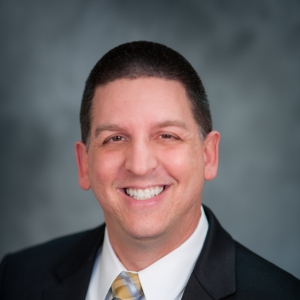Interview with Dr. Richard Zraick of University of Central Florida

Dr. Richard Zraick is Professor and Director, School of Communication Sciences and Disorders, at the University of Central Florida. His professional foci are voice disorders, health communication, healthcare simulation, and interprofessional education. He is an American Speech-Language-Hearing Association (ASHA) Fellow.
Note: You should consult with your doctor or speech pathologist for recommendations on treatment. The views and opinions expressed in this article are those of Dr. Zraick and do not necessarily reflect the official policy or position of SpeechPathologyMastersPrograms.com
How did you become interested in health literacy?
I have been a clinician for over 30 years, and there have been many times when either patients admitted they had trouble understanding what they were reading, or, I suspected they had trouble understanding what they were reading.
What are some of the obstacles to ensuring a patient is health literate?
- Lack of awareness by healthcare professionals as to the impact of low health literacy on the patient, the healthcare system and society.
- Social stigma and shame associated with illiteracy.
How can we train clinicians to better meet the needs of patients who are less health literate?
Educate students and clinicians as to the prevalence of low health literacy in the general population. Provide to clinicians the instruments and skills needed to identify persons with low health literacy. Provide to clinicians the skills needed to communicate with persons with low health literacy.
Some of your research focuses specifically on readability of materials that are meant to educate patients, as well as questionnaires that are important tools for gathering patient data. How often are these materials readable and how has this impacted those who use them?
By and large, most materials require a reading comprehension level that far exceeds the recommended guideline of being written at a 5th-6th grade reading level. This holds true not only for materials directed at patients (such as questionnaires, informational packets, etc.) but also for web-based consumer materials. This also holds true for materials used in educational settings, such as the federal Individuals with Disabilities Education Act (IDEA) documents.
Has health literacy changed over the years- what has already happened to help or hinder it?
Health literacy remains low, with approximately 14% of the US population demonstrating below average health literacy skills. These individuals struggle with basic tasks such as following prescriptions, following a vaccination schedule, following signs within a hospital, etc. There are federal guidelines for the use of Plain Language which have helped to some degree.
What aspect of your research are you most proud of?
The issue of health literacy in persons with communication disorders received very little scholarly focus prior to 2010. Since that time, my colleagues and I have led research and education efforts in this regard within our discipline.
What is your advice for Speech pathology graduate students?
Don’t assume that the person in front of you, or their caregiver, can read at the level necessary to accurately respond to questionnaires and other materials. Even college-educated persons can struggle with health literacy. Don’t be afraid to gently ask the person to let you know if they need assistance in completing the forms. Much of our clinical decision-making is dependent on information provided to us by patients and their caregivers: “junk in, junk out” should be your guiding principle – make sure your clinical decisions are as well-informed as possible.
Sponsored online speech pathology programs

Online MS: Pursue SLP Certification. Study FT/PT
Speech@Emerson enables you to earn an MS online and pursue SLP certification in as few as 20 mos. Learn the same curriculum as the on-campus program. Study FT or PT.
- Prepares you to pursue certification as an SLP generalist
- In-person clinical placements at faculty-approved partner sites
- As few as 20 months to complete
AD

Want to Become an SLP? Earn an MS Online at NYU
NYU Steinhardt’s online master of science program in Communicative Sciences and Disorders prepares aspiring speech-language pathologists with a comprehensive professional education.
- Prepares students to pursue SLP licensure
- Accredited by ASHA’s Council on Academic Accreditation
- As few as six terms to complete
- Full-time and part-time plans of study
AD

Online MS in Speech-Language Pathology from Pepperdine University
Pepperdine University’s online Master of Science in Speech-Language Pathology program combines a robust, innovative curriculum rooted in Christian values with a full-time or part-time option that features online learning, on-campus intensive experiences, and comprehensive clinical field practicums to prepare skilled, compassionate students for careers as speech-language pathologists.
- Full-time (five trimesters) or part-time (eight trimesters) options available.
- No GRE scores required.
- 400+ supervised, clinical learning hours are done at schools/clinics local to students
- Three onsite experiences build a sense of camaraderie and community throughout the program
AD

